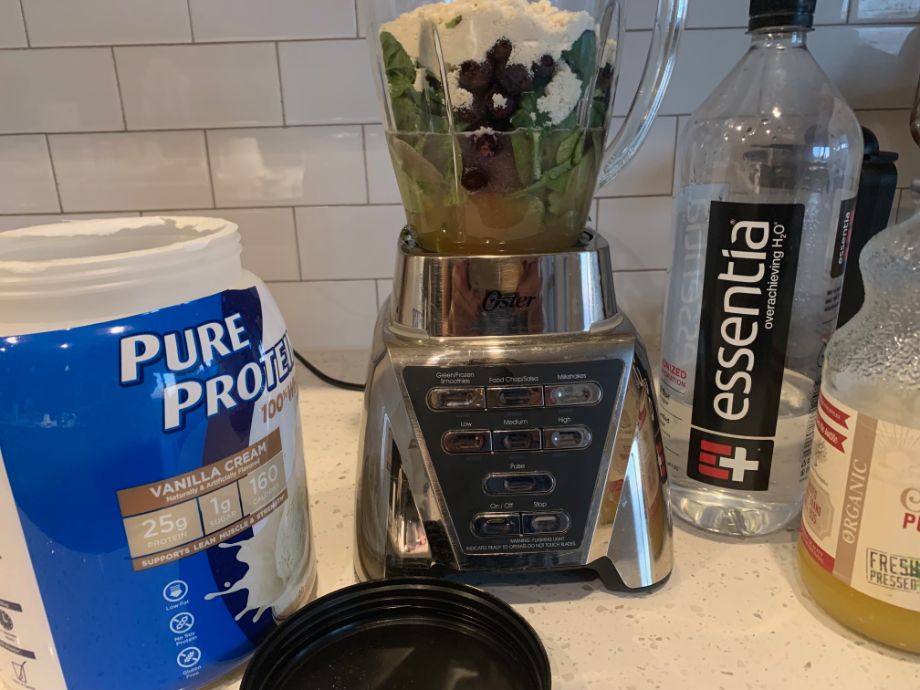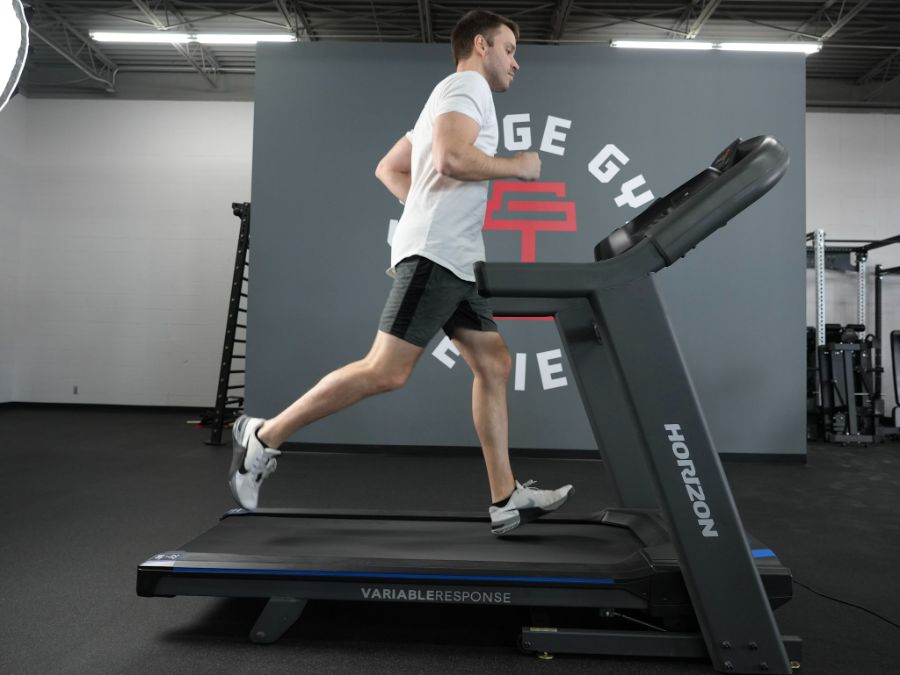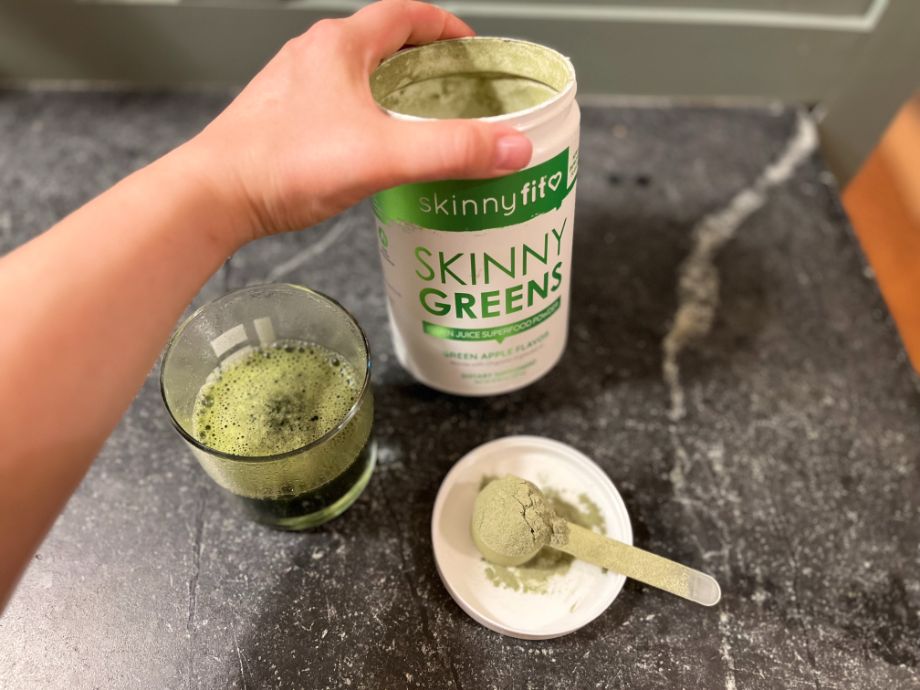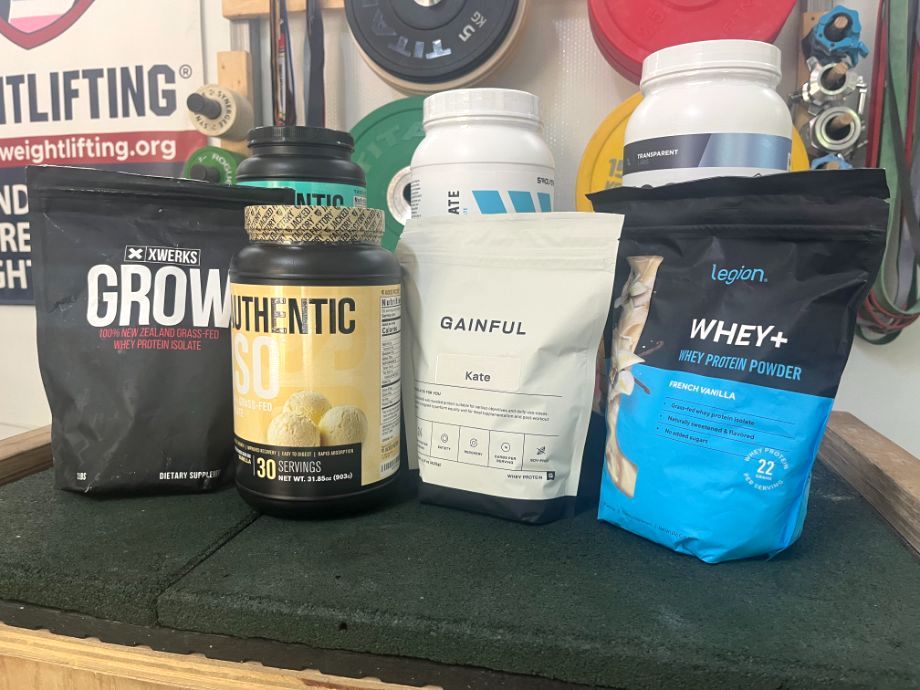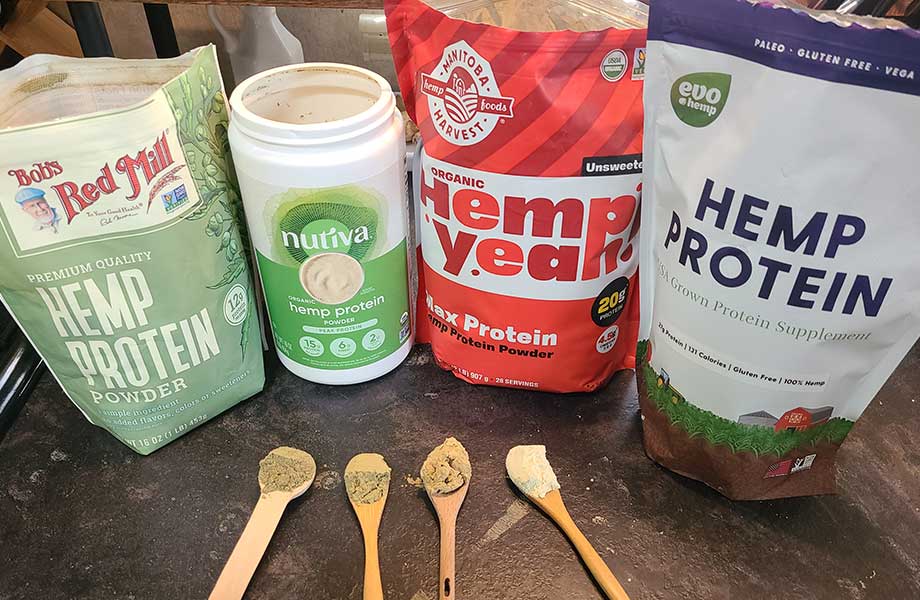Feeding your muscles before you hit the gym can set the stage for successfully reaping the benefits of strength training. However, failing to provide your body with the correct nutrients can quickly derail your plans of hitting a PR or crushing a WOD.
As a certified personal trainer (CPT), seasoned weightlifter, and longtime rugby player, I can attest that nutrition plays a pivotal role in your performance. Whether you’re preparing for a HIIT workout or a long-distance run, a well-formulated pre-workout smoothie can majorly impact your energy levels, focus, and overall success.
RELATED: Best Pre-Workout Food
In this comprehensive guide, I’ll show you how to optimize your smoothie by exploring the health benefits of specific ingredients, providing practical preparation tips, and highlighting common mistakes. I’ve also included several easy-to-make recipes to equip you with the knowledge and inspiration to create delicious pre-workout smoothies that’ll help you achieve your fitness goals one tasty sip at a time.
Tried and True Pre-Workout Smoothie Ingredients
Creating a balanced pre-workout smoothie involves selecting ingredients that provide the right mix of carbohydrates, protein, and healthy fats to fuel your training session. Here’s a breakdown of the types of ingredients that belong in your blender.
Carbohydrates
- Banana: High in fast-digesting carbs and potassium, bananas provide a boost of energy and help prevent muscle cramps during workouts.
- Berries: Blueberries, strawberries, and raspberries are rich in antioxidants, supply quick energy, and are fairly low in calories.
- Mango: Mango is a tropical fruit with a good amount of quick-digesting carbs and natural sugars, making it an excellent choice for pre-workout energy. It also offers a range of vitamins—particularly vitamin C—which supports immune function.
- Pineapple: Pineapple is rich in natural sugars and bromelain, an enzyme that can aid in digestion and reduce inflammation. Its high carbohydrate content makes it a great option before a workout.
- Oats: A source of complex carbohydrates, oats deliver sustained energy and help maintain stable blood sugar levels during longer training sessions.

RELATED: Best Fruit For Building Muscle
Protein
- Whey protein: Easily digestible and rich in essential amino acids, whey protein benefits include muscle repair and growth, making it ideal for both pre- and post-workout nutrition.
- Greek yogurt: High in protein and probiotics, Greek yogurt supports muscle health and improves gut function. Stick with the fat-free version if you’re concerned about your caloric intake.
- Plant-based protein powder: Options like pea or hemp protein powder are great for those who prefer vegan alternatives and still want to ensure adequate protein intake before training.
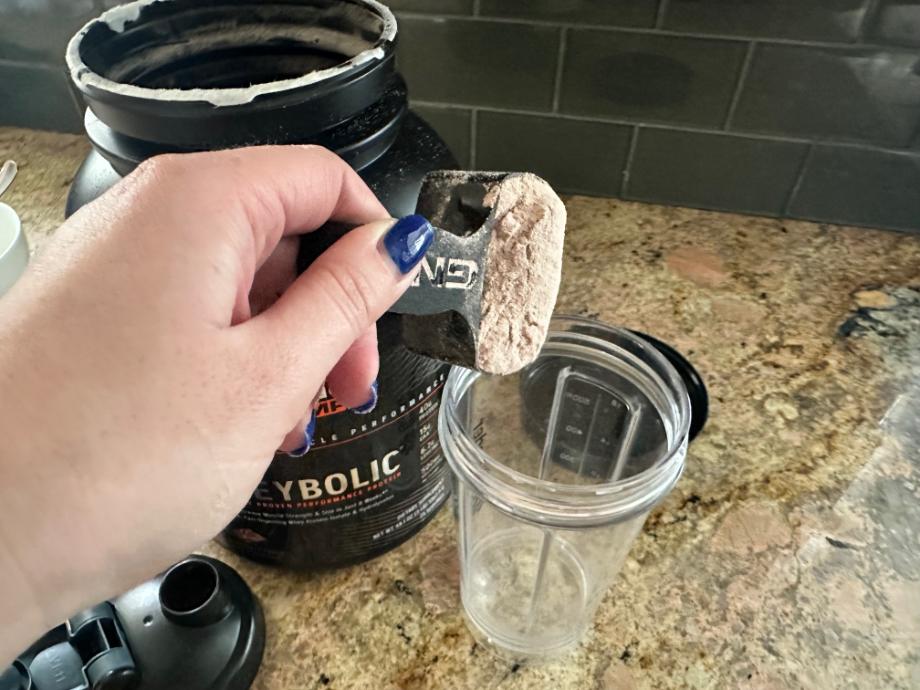
RELATED: Best Protein Powder For Smoothies
Healthy Fats
- Almond butter: Almond butter contains heart-healthy monounsaturated fats, which can enhance your body’s absorption of fat-soluble vitamins.
- Flaxseeds: These seeds are high in omega-3 fatty acids, which can help reduce inflammation and support heart health. Flaxseeds also provide a good amount of fiber and protein, making them a well-rounded addition to any smoothie.
- Chia seeds: These seeds also offer omega-3 fatty acids, fiber, and protein, which support energy levels and overall health during workouts.
- Coconut oil: A source of medium-chain triglycerides (MCTs), coconut oil can be quickly converted into energy1. Be aware that it can alter the taste of your smoothie.
Hydration
- Coconut water: Rich in electrolytes, coconut water helps maintain hydration and replenish minerals lost through sweat during exercise.
- Unsweetened almond milk: Low in calories and a good source of calcium and vitamin D, almond milk provides hydration and complements other ingredients without adding unnecessary sugars or altering the flavor.
Supplements
- Creatine: Creatine is one of the most well-researched sports nutrition supplements. It helps increase phosphocreatine stores in your muscles, allowing for enhanced ATP production2 during high-intensity workouts.
- Beta-alanine: An amino acid that helps buffer acid in your muscles, beta-alanine can help reduce muscle fatigue3 during high-intensity exercise.
- Caffeine: A stimulant that enhances focus, alertness, and endurance, caffeine can provide an energizing effect4.
- L-citrulline: This amino acid increases nitric oxide production5, improving blood flow and nutrient delivery to your muscles.
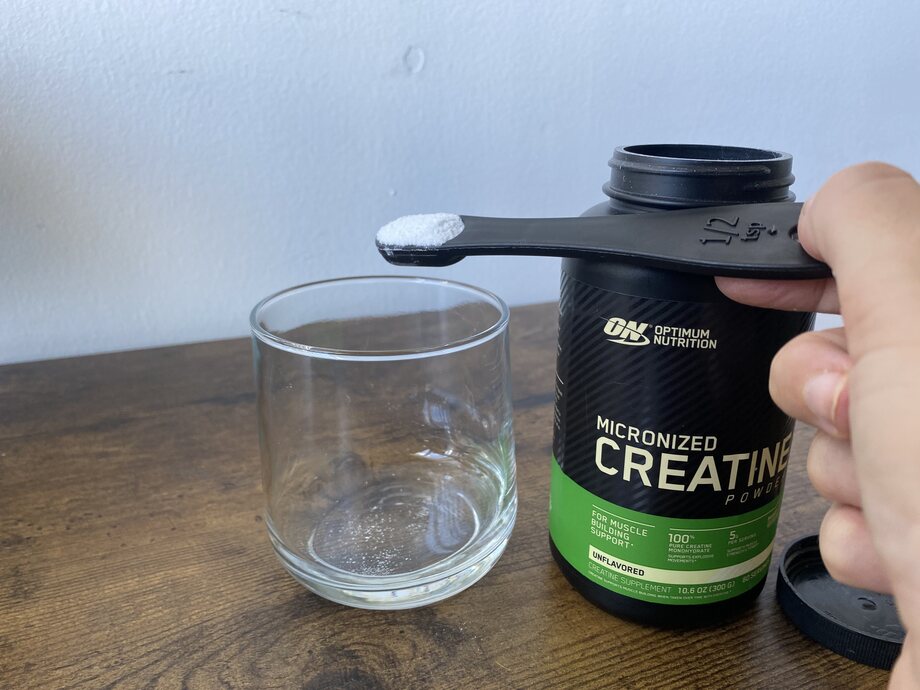
RELATED: Can I Mix Creatine With Pre-Workout?
Pre-Workout Smoothie Recipes
To keep your tastebuds and muscles happy, I’ve curated a list of delicious and nutritious pre-workout smoothie recipes that provide the energy and nutrients you need for optimal performance and recovery. Each smoothie combines different flavors and ingredients to ensure you have plenty of options.
Peanut Butter Banana Smoothie
Featuring a balance of healthy fats (peanut butter), carbs (banana), and protein (Greek yogurt), this classic combination should give you everything you need to crush your workout.
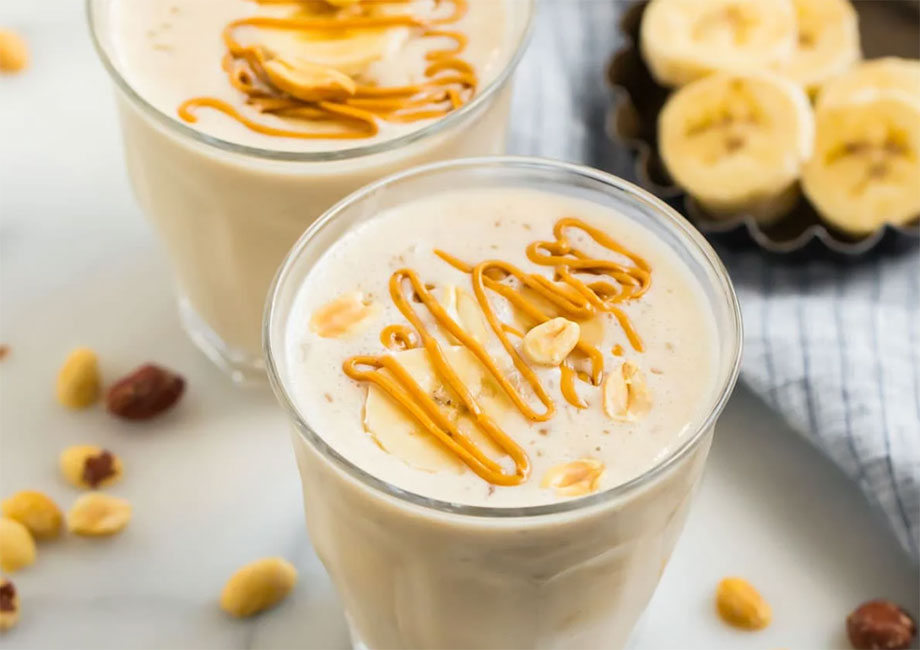
In a blender, combine:
- ¾ cup unsweetened almond milk
- 1 large banana (frozen and cut into chunks)
- 2 tbsp peanut butter
- ½ cup nonfat plain Greek yogurt
- ¼ tsp ground cinnamon
- ½ scoop protein powder (optional)
Recipe by Well Plated
Berry Blast Muscle Builder
Packed with mixed berries, spinach, and protein powder, this smoothie is a nutrient powerhouse designed to enhance muscle growth and provide sustained energy.
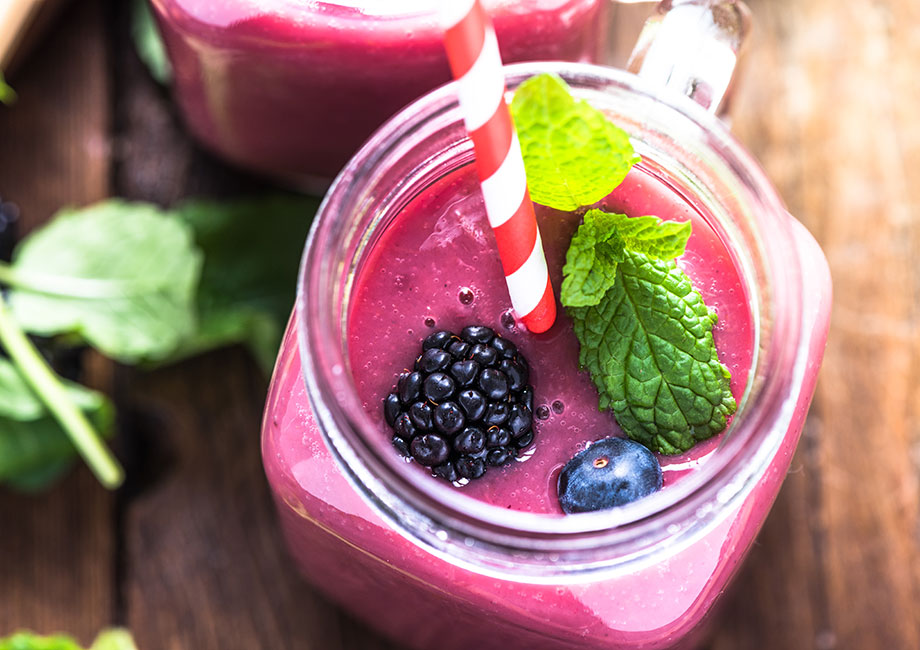
In a blender, combine:
- ½ cup frozen mixed berries
- 1 cup spinach (fresh or frozen)
- 1 scoop protein powder (vanilla or chocolate)
- 1 tbsp flaxseed
- 1 cup almond milk
Recipe by Legacy Performance
Green Energy Smoothie
This green smoothie features spinach, pineapple, and grapefruit, offering a perfect blend of quick-digesting carbs, protein, and healthy fats to keep you energized throughout your workout.
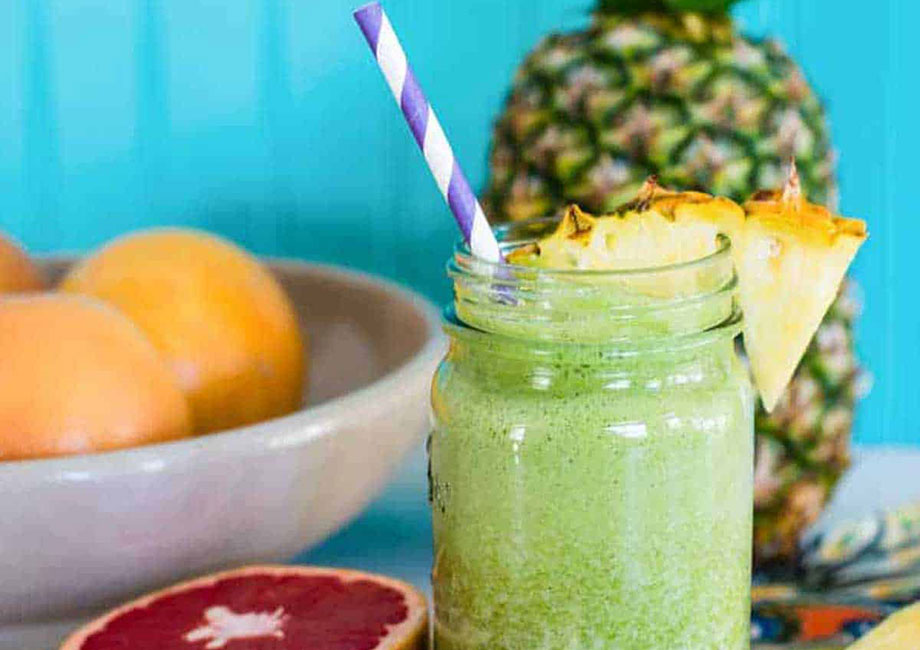
In a blender, combine:
- 1 cup spinach
- ½ cup water
- ½ grapefruit (peeled)
- 1 cup pineapple chunks (frozen)
- 1 serving of protein powder
Recipe by Simple Green Smoothies
Creamy Blueberry Avocado Smoothie
Combining the creamy texture of avocado with the natural sweetness of various fruits, this smoothie provides healthy fats, protein, and carbs for a well-rounded pre-workout boost.
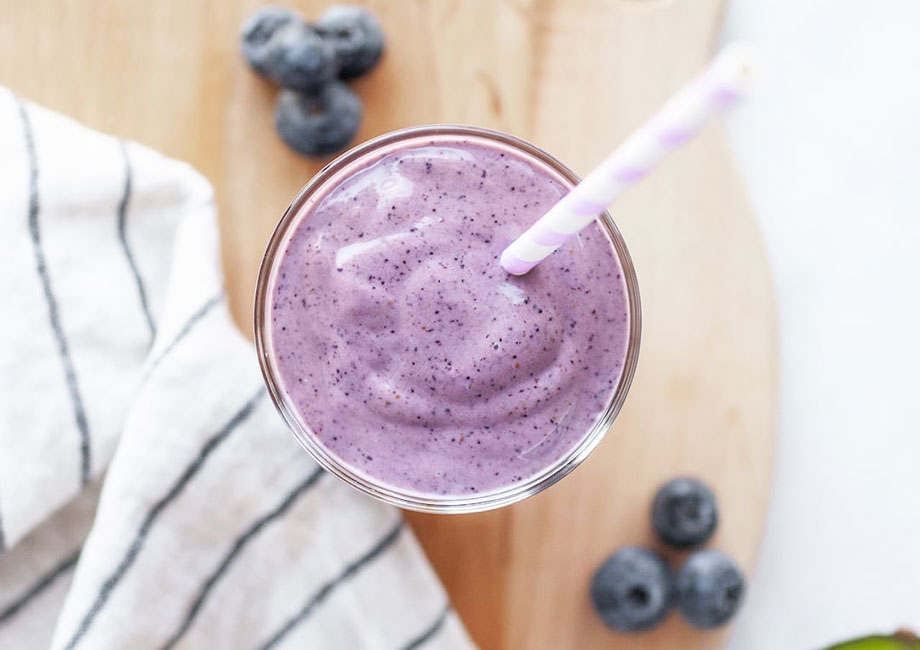
In a blender, combine:
- ¾ cup blueberries (fresh or frozen)
- ¼ avocado
- ½ banana (frozen)
- ½ tsp cinnamon
- 2 large pitted dates
- ¾ cup unsweetened almond milk (vanilla)
- 1 scoop of plant protein powder
Recipe by Nutrition in the Kitch
Smoothie-Making Tips and Tricks
As someone who’s whipped up hundreds of smoothies and protein shakes over the years, I’ve compiled a few of my favorite tips and tricks to make the process as smooth and painless as possible.
Balance Your Macronutrients
Ensure your smoothie contains a balance of carbohydrates, protein, and healthy fats. Carbs provide quick energy, protein aids in muscle repair, and fats offer sustained energy. This balance will optimize your workout performance and recovery.
Use Frozen Fruits for Creaminess
Using frozen fruits like bananas, berries, and mangoes can give your smoothie a thick, creamy texture without needing ice cubes. This not only improves the consistency but also keeps your smoothie cold and refreshing.
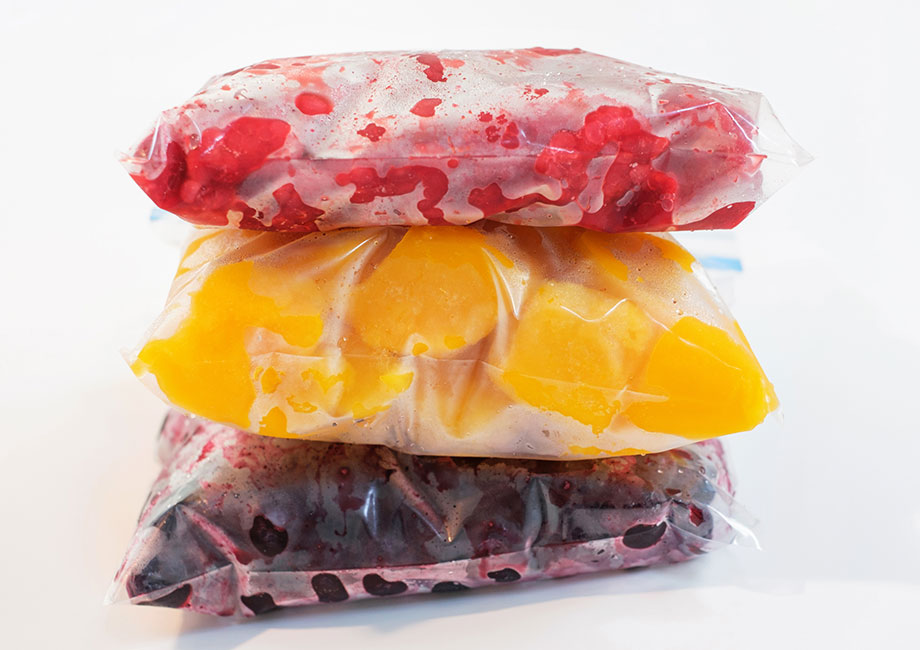
Sweeten Naturally
Use natural sweeteners like honey, maple syrup, or dates instead of refined sugars. These options provide additional nutrients and help maintain stable blood sugar levels.
RELATED: What Is Erythritol?
Experiment with Greens
Adding leafy greens like spinach or kale boosts the nutrient content of your smoothie without altering the taste significantly. These greens provide essential vitamins and minerals that support overall health.
Benefits of Pre-Workout Smoothies
Incorporating a smoothie into your fitness routine is an easy way to put yourself on the path to a more effective workout.
Boosts Energy Levels
Pre-workout smoothies are typically packed with carbohydrates that provide a quick, efficient source of energy. Consuming a smoothie 30 to 60 minutes before a workout ensures that your body has the necessary fuel to power through an intense training session.
RELATED: Should You Drink a Protein Shake Before or After a Workout?
Supports Muscle Recovery
Including protein in your pre-workout smoothie helps with muscle repair and growth. Protein sources like Greek yogurt, protein powder, or plant-based options provide the essential amino acids needed to support muscle recovery and reduce muscle soreness.
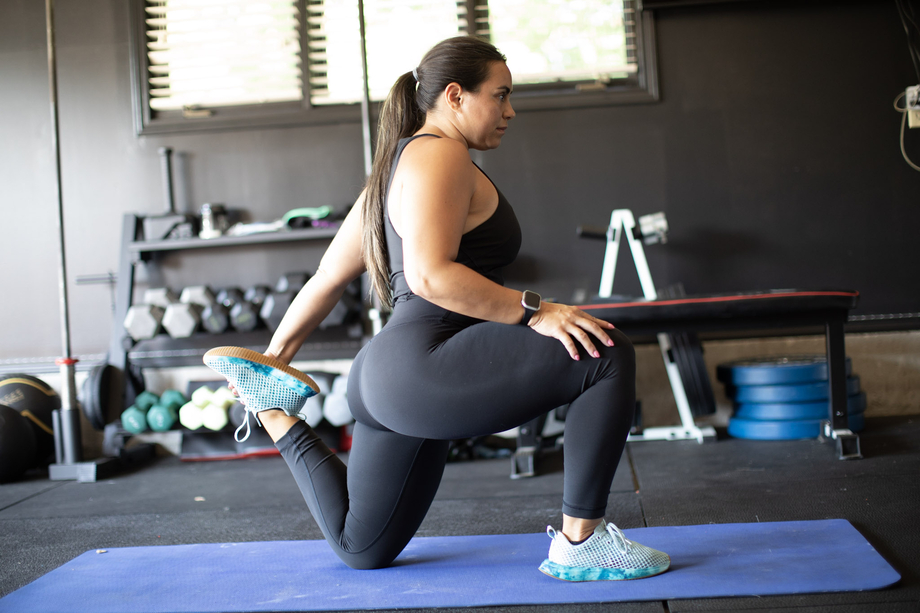
Enhances Hydration
Many pre-workout smoothies include hydrating ingredients like coconut water and almond milk. Proper hydration—aka maintaining adequate electrolyte levels—is crucial for maintaining performance and preventing dehydration, which can negatively impact your workout intensity and endurance.
RELATED: How To Make A Homemade Electrolyte Drink
Convenient and Easy to Prepare
Smoothies are quick to make and can be easily customized to fit your dietary preferences and nutritional needs. This convenience makes them an ideal choice for busy individuals who need a nutritious pre-workout meal on the go.
How Macronutrients Impact Performance And Recovery
Understanding the role of macronutrients is crucial for crafting a pre-workout smoothie that will fuel your training sessions effectively. Each macronutrient—carbohydrates, proteins, and fats—plays a unique and essential function in the body’s performance and recovery process.
Carbohydrates
Carbohydrates are the body’s primary energy source, especially during high-intensity workouts. Once consumed, they’re broken down into glucose for immediate energy or stored as glycogen6 in the muscles and liver for later use.
During a workout, having adequate glycogen stores is vital for sustaining energy levels and preventing fatigue. Carbohydrates are particularly important before training sessions because they ensure your muscles have the necessary fuel to perform optimally. Consuming fast-digesting carbs, such as those found in fruits and oats, about 30 to 60 minutes before a workout can help maximize energy availability.
RELATED: Best Carbs For Bodybuilding
Protein
Protein is essential for muscle repair and growth, making it a critical component of any pre- and post-workout smoothie. When consumed before a workout, protein can help prevent muscle breakdown and promote muscle protein synthesis7 by providing essential amino acids needed for repair and growth.
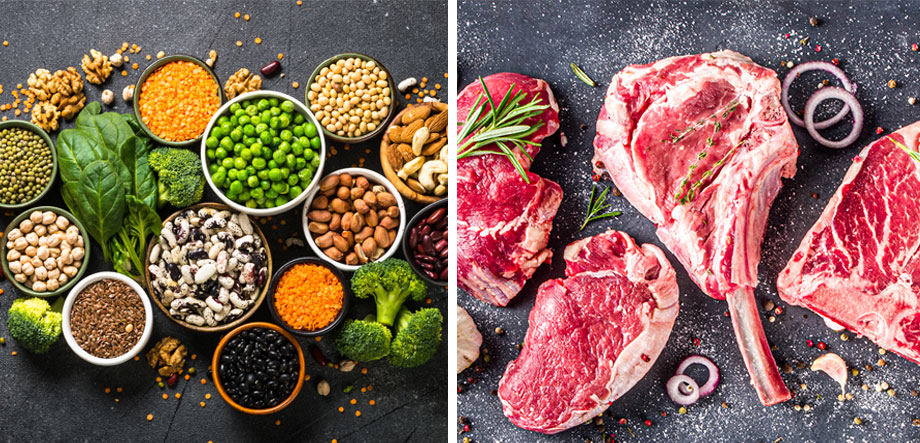
RELATED: Plant Protein Vs Animal Protein
Fats
Fats are a concentrated source of energy, providing nine calories per gram, more than double that of carbohydrates and protein. Healthy fats, such as those from nuts, seeds, and avocados, play a crucial role in hormone production8, nutrient absorption, and sustained energy.
In the context of a pre-workout smoothie, fats help slow down digestion, providing a steady release of energy throughout your workout. While fats are not the primary source of energy during high-intensity workouts, they’re essential for endurance-based sessions9. Including a small amount of healthy fats in your smoothie can help you maintain energy levels and support overall health.
RELATED: How Much Carbs, Protein, And Fat Per Day Is Ideal?
Common Smoothie-Making Mistakes
By avoiding these common mistakes, you can make a more effective and nutritious pre-workout smoothie that enhances your training sessions and supports your fitness goals.
Including Too Much Fiber
While fiber is essential for a healthy diet and optimal gut health, consuming too much before a workout can lead to digestive discomfort and bloating. High-fiber ingredients like whole grains, certain fruits, and vegetables can be hard to digest quickly, potentially causing cramping during your workout.
How to correct it: Opt for moderate fiber options like a small amount of spinach or chia seeds and focus on easily digestible carbs like bananas and berries.
Overloading With Sugar
Adding too many sugary fruits or sweeteners can lead to a rapid spike in blood sugar followed by a crash, leaving you feeling sluggish during your workout. Excess sugar can also contribute to unwanted calorie intake.
How to correct it: Use fruits like berries and bananas in moderation and sweeten naturally with small amounts of honey or dates if needed.
De-Prioritizing Protein
Protein helps prevent muscle breakdown and supports muscle repair and growth. Neglecting protein in your pre-workout smoothie can hinder your muscle recovery and growth potential.
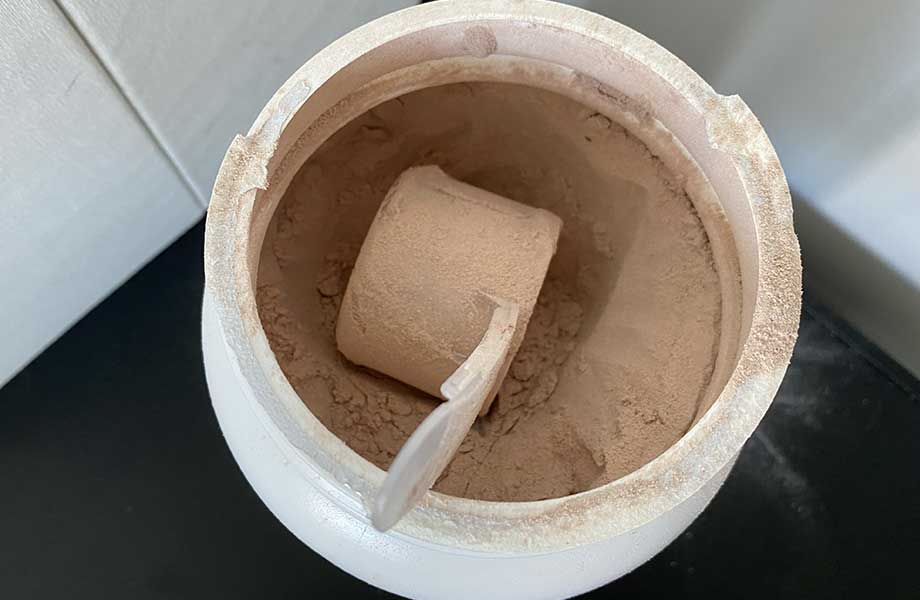
How to correct it: Add Greek yogurt or protein powder to your smoothie to support your muscle-building journey. I aim for about 25 grams of protein per smoothie, which comes out to about one cup of Greek yogurt or one full scoop of protein powder.
RELATED: Protein Powder Alternatives
Using Too Many High-Calorie Ingredients
Overloading your smoothie with high-calorie ingredients like full-fat yogurt, nut butters, and sweeteners can transform a dreamy drink into a caloric nightmare. This can be counterproductive, especially if you’re trying to achieve a weight-loss goal.
How to correct it: Use these ingredients in moderation and focus on balancing your smoothie with nutrient-dense, lower-calorie options like almond milk, leafy greens, and fruits.
What About Post-Workout Smoothies?
While pre-workout smoothies can provide quick and sustained energy, enhance your performance, and prevent muscle breakdown, post-workout shakes focus on replenishing the nutrients lost during exercise. They typically have a higher protein content to aid in muscle repair. For example, I’ll usually put two scoops of my favorite whey protein powder in my post-workout smoothie.
RELATED: Post-Workout Recovery Myths
Your post-workout smoothie should also contain sufficient carbohydrates to replenish depleted glycogen stores. This will ensure you have fuel in the tank for your next training session. Plus, it can be helpful to include ingredients that help reduce inflammation, such as ginger, turmeric, and berries.
Pre-Workout Smoothie: Final Thoughts
Blending the perfect pre-workout smoothie is an art and a science, but with the right ingredients, you can sip your way to peak performance. Whether you’re pumping iron or hitting the track, taking a few minutes to craft a nutrient-dense drink is a worthwhile investment. While these recipes can serve as inspiration, don’t be shy about letting your creative juices flow so you can keep your taste buds guessing.
Pre-Workout Smoothie: FAQs
What ingredients should I include in a pre-workout smoothie for energy and endurance?
Include a balance of carbohydrates, protein, and healthy fats. Good options are bananas, berries, and oats for carbs; Greek yogurt or protein powder for protein; and almond butter or chia seeds for fats. Adding hydrating ingredients like coconut water can also be beneficial.
When should I drink a pre-workout smoothie?
Drink your pre-workout smoothie 30 minutes to an hour before exercising so you don’t run into any cramping or nausea issues. This timing allows your body to digest the nutrients and convert them into energy for optimal performance.
RELATED: Pre-Workout Nausea
Do smoothies help build muscle?
Yes, smoothies can help build muscle if they contain adequate protein to support muscle repair and growth. Including ingredients like whey protein, Greek yogurt, or plant-based protein powder will provide the necessary amino acids for muscle development.
Is whey protein vegan?
No, whey protein is not vegan, as it’s derived from milk. Vegan alternatives include protein powders made from pea, hemp, or brown rice.
RELATED: Best Vegan Protein Powder
References
- Boateng, L., Ansong, R., Owusu, W. B., & Steiner-Asiedu, M. (2016). Coconut oil and palm oil’s role in nutrition, health and national development: A review. Ghana Medical Journal, 50(3), 189-196. https://www.ncbi.nlm.nih.gov/pmc/articles/PMC5044790/
- Kreider, R. B., Kalman, D. S., Antonio, J., Ziegenfuss, T. N., Wildman, R., Collins, R., Candow, D. G., Kleiner, S. M., Almada, A. L., & Lopez, H. L. (2017). International Society of Sports Nutrition position stand: Safety and efficacy of creatine supplementation in exercise, sport, and medicine. Journal of the International Society of Sports Nutrition, 14. https://doi.org/10.1186/s12970-017-0173-z
- Trexler, E. T., Smith-Ryan, A. E., Stout, J. R., Hoffman, J. R., Wilborn, C. D., Sale, C., Kreider, R. B., Jäger, R., Earnest, C. P., Bannock, L., Campbell, B., Kalman, D., Ziegenfuss, T. N., & Antonio, J. (2015). International society of sports nutrition position stand: Beta-Alanine. Journal of the International Society of Sports Nutrition, 12. https://doi.org/10.1186/s12970-015-0090-y
- Guest, N. S., VanDusseldorp, T. A., Nelson, M. T., Grgic, J., Schoenfeld, B. J., Jenkins, N. D. M., Arent, S. M., Antonio, J., Stout, J. R., Trexler, E. T., Smith-Ryan, A. E., Goldstein, E. R., Kalman, D. S., & Campbell, B. I. (2021). International society of sports nutrition position stand: caffeine and exercise performance. Journal of the International Society of Sports Nutrition, 18(1), 1. https://doi.org/10.1186/s12970-020-00383-4
- Gonzalez, A. M., & Trexler, E. T. (2020). Effects of Citrulline Supplementation on Exercise Performance in Humans: A Review of the Current Literature. Journal of strength and conditioning research, 34(5), 1480–1495. https://doi.org/10.1519/JSC.0000000000003426
- Murray, B., & Rosenbloom, C. (2018). Fundamentals of glycogen metabolism for coaches and athletes. Nutrition Reviews, 76(4), 243-259. https://doi.org/10.1093/nutrit/nuy001
- Cintineo, H. P., Arent, M. A., Antonio, J., & Arent, S. M. (2018). Effects of Protein Supplementation on Performance and Recovery in Resistance and Endurance Training. Frontiers in Nutrition, 5. https://doi.org/10.3389/fnut.2018.00083
- Meijaard, E., Abrams, J. F., Slavin, J. L., & Sheil, D. (2022). Dietary Fats, Human Nutrition and the Environment: Balance and Sustainability. Frontiers in Nutrition, 9. https://doi.org/10.3389/fnut.2022.878644
- Volek, J. S., Noakes, T., & Phinney, S. D. (2015). Rethinking fat as a fuel for endurance exercise. European journal of sport science, 15(1), 13–20. https://doi.org/10.1080/17461391.2014.959564


